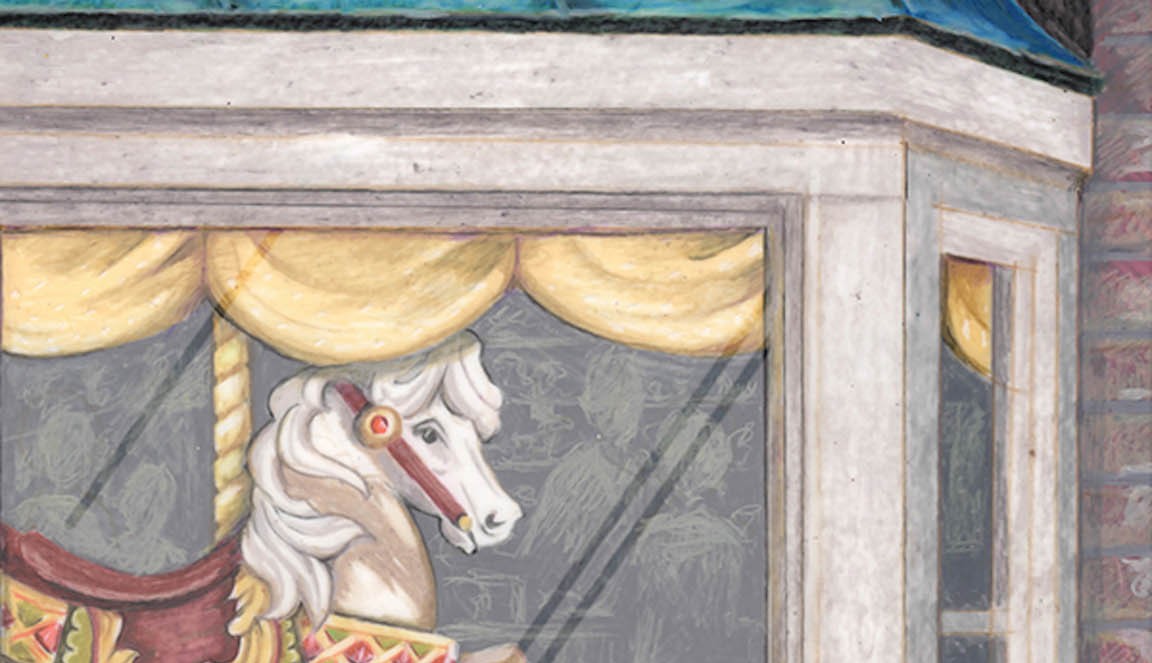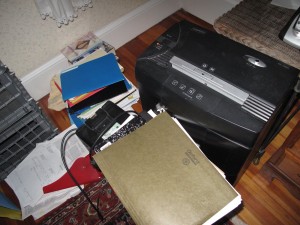“If you see an adverb, kill it.” – Mark Twain
I have read quite a lot about the art of nesting. What I think we are doing here in the second week of the new normal could be called un-nesting. Viewed through the eyes of a writer, it could also be seen as editing. After twenty plus years together, more than eighteen of them spent in this house, we have accumulated and saved too much stuff. Our life is the equivalent of adverbs run amuck.
Once again, I am reminded writers see things differently. This is a politically correct way of saying we are all a little strange. My husband and I made the decision to “unstuff” our lives a few weeks ago. It seems like the ideal time. to do it. We both are free to work on the project. The basement – really in this house, built in 1922, it’s a cellar – is a very pleasant place to work. The attic, on the other hand, is an anteroom of hell in July.
As we go through our collected files, stacks, and shoeboxes, I think of my father. The week before his sudden death, he cleared out his own papers and other saved objects leaving only neatly rolled socks and folded handkerchiefs behind in the drawer. My mother’s death was not sudden but she handled a life’s worth of accumulated papers and other treasures in the same way. When my sister and I went through her things after her death, we only saw what she wanted us to see and nothing more.
I have also been present when this was not the case. My memories of what happened then are not pleasant ones. My daughter still shutters when she describes what she calls “The Raid” family members made on the possessions of an elderly relative who left it all up for grabs. My husband and I decided we would prefer to do our own editing, thank you very much.
This is not an activity for the faint-hearted. There is a poignancy involved in going back through the years. Each document or squirreled away program, ticket stub, memorial prayer card, or object tells a story. Sometimes, we come across a photograph taken of a happy event, such as a wedding, where the story did not have a happy ending. Even though we are doing it together, it has turned out to be for the most part a solitary task for each of us as we sit sifting through items, awash in memories.
As I have gone through cards, bills, bank documents, report cards, cancelled checks, etc. deciding what goes to the shredder and what to save, it occurs to me the shredder is the green equivalent to the method my father used which was fire. The results are the same. Gone. Hidden from prying eyes and what my mother used to call “cheap talk.”
The writer in me turns back to my characters. I ask myself what would they save and why? What would their choices tell my readers about them?
“Where do you get the ideas for your stories?” This is perhaps the question I am most often asked when I go to book groups or someone learns I’m a writer. Nestled among the papers my sister and I found when we went through the documents my mother saved was the funeral bill for the sum of fifty dollars to bury my infant brother forty-two years before. It was mark paid in my mother’s handwriting.
The daughter’s heart breaks, but the writer takes note.

